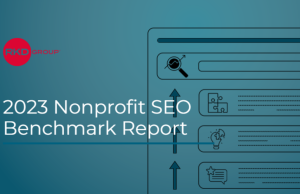GiveSafely, a charity donation platform launched on July 4 by the Arlington, Va.-based BBB Wise Giving Alliance, seeks to engage Millennial and Generation Z donors. The platform addresses their delight at being solicited, their desire for cybersecurity and their inherent impulse to be recognized and rewarded.
Overall, around 11 percent of consumers welcome being approached for donations, according to the Wise Giving Alliance’s Give.org Donor Trust Report. Millennials – people born roughly between 1981 and 1997 – and Generation Z consumers – those born after 1998 – are open to being solicited, with 23 percent of the former and 19 percent of the latter welcoming such approaches, the data shows.
Despite the desire to give, donors worry about their personal data being stolen, misused or improperly monetized, according to Ezra Vazquez-D’Amico, research analyst at BBB Wise Giving and manager of GiveSafely.
GiveSafely seeks to address the data concerns, while providing younger potential donors an engaging way to be introduced to, and encouraged to fund, a variety of charities. Every charity has been vetted, so donors know they can give with confidence.
The platform sits on a blockchain structure which is considered to be more secure than many systems. Donor data is passed directly from individuals to charities the donors designate, and GiveSafely takes neither data nor processing fees.
The platform rewards donors with TrustTokens – points earned through donations as well as willingness to give contact information to participating charities. TrustTokens can be redeemed for a variety of unique rewards, such as exclusive video calls with charity officials and access to gated material. Nearly all of the rewards are virtual, although the Wild Animal Sanctuary is testing a COVID-19 compliant tour of its World’s Largest Carnivore Sanctuary.
“The idea is that charities put up an experience that has a human element, and also ties donors into their mission in a low-stakes, low-pressure way,” Vazquez-D’Amico said.
The rewards also help introduce charities to a donor who might not have otherwise investigated the nonprofit. Individuals can claim rewards from a charity to which they haven’t made a donation, provided they’ve earned tokens from other donations. In doing so, they consent to having their contact information shared with the new charity, enabling it to start a conversation with them.
GivingSafely allows donors to use digital currencies such as Bitcoin, which a healthy percentage of wealthy Millennials use, and which charities don’t necessarily know how to accept. And its focus is on the rewards, as opposed to the ask.
“The last thing you should do is ask [Millennials] for money, and that phrase operates on both levels,” Vazquez-D’Amico said. “There should be some engagement and interactions with them before that happens, and these personal experiences may be a way of having that.”








